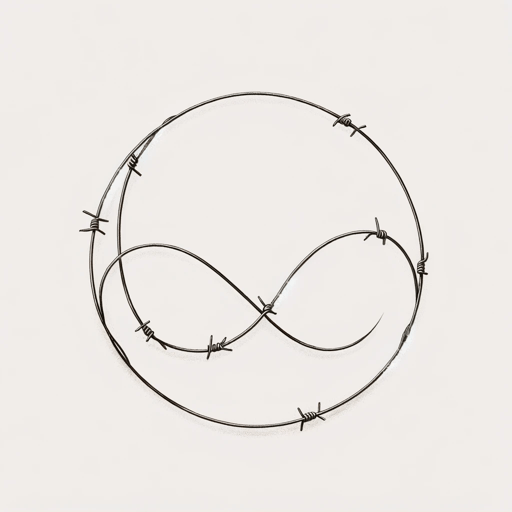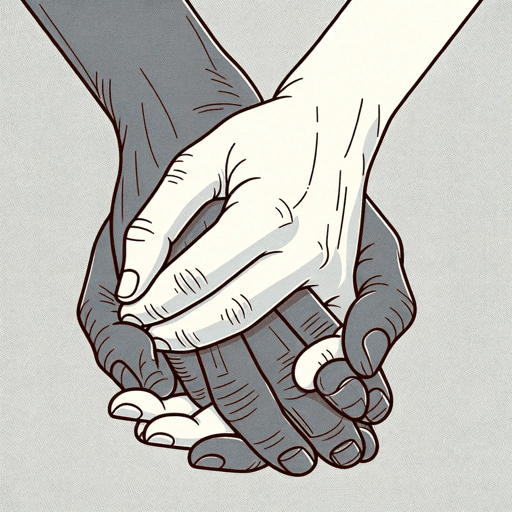53 pages • 1 hour read
Nadine GordimerJump and Other Stories
Fiction | Short Story Collection | Adult | Published in 1991A modern alternative to SparkNotes and CliffsNotes, SuperSummary offers high-quality Study Guides with detailed chapter summaries and analysis of major themes, characters, and more.
Summary and Study Guide
Overview
Published in 1991, Jump and Other Stories is a collection of 16 short stories by Nadine Gordimer. Each story provides insight into how apartheid affected the people of South Africa. Featuring tales of tragedy, war, revolution, and love, the collection uses a diverse cast of characters to address systemic racism and offer hope for an inclusive future. Nadine Gordimer was a South African writer and political activist who was awarded the Nobel Prize in Literature in 1991.
Plot Summary
“Jump” tells the story of a White soldier confined to a hotel room as he waits to be freed and reflects on his life. As a youth, he joins a parachute club and revels in the thrill. The Black community around the soldier’s family rebels against an oppressive system, but the soldier’s family is apathetic to their cause. After the Black military gains more control, the soldier is arrested at the beach for taking photographs. He grows to hate the current government and leaves for Europe, where he organizes with others to fight a counterrevolution. He returns to South Africa and is complicit in horrific war crimes. Now captured, he gives the government information in exchange for his life and a second chance. In his hotel, he senses that chance will never come, and he contemplates jumping from his hotel balcony.
“Once Upon a Time” is the tale of an affluent White family desperate to keep their house secure. As Black people journey into their neighborhood looking for work, they add more and more security features to their home. Their final addition is lethal barbed wire along the perimeter of their home. After hearing the story of Sleeping Beauty, the family’s little boy tries to navigate the barbed wire, like the prince in the story. The boy becomes trapped, and the barbed wire kills him.
“The Ultimate Safari” centers on a young Black girl in Mozambique whose village is attacked by bandits. She flees with her grandparents and her two brothers. To make it to safety, they sneak through a safari park where White tourists stay. They struggle to find food and become steadily weaker. The grandfather disappears into a field of grass one day and never returns. The rest of the family manages to survive and reaches a refugee camp. They stay there for years. The girl and her older brother go to school, but their little brother never regains his strength and cannot speak. The girl’s grandmother says she will never return to Mozambique. There’s no home there anymore, but the little girl hopes to return some day and remember her lost home.
A bitter divorcee finds a beautiful ring on a beach in “A Find.” He puts out an advertisement in the paper to track down the owner. Many people come to claim the ring, but the man sees they are lying. A middle-aged woman arrives later, and the man senses she’s telling the truth. He gives the ring back to her. The two go out to dinner and eventually marry.
“My Father Leaves Home” is the story of a Jewish boy sent away from his village to start a watchmaking business. He struggles to find work in a new country but eventually finds business selling watches to White and Black miners. He marries an Englishwoman who judges his upbringing and culture. In the end, the watchmaker’s daughter recalls seeing her father treat his Black employee cruelly, and the name of his childhood village is unknown to her.
“Some Are Born to Sweet Delight” centers on Vera, a teenager in a well-to-do family. She falls in love with Rad, an immigrant who rents a room in their house. As their romance builds, her parents disapprove of Vera’s relationship, but she continues seeing Rad anyway. She becomes pregnant, and Rad insists she fly to his home country to meet his parents before she delivers the baby. At the airport, Rad gives Vera a parting gift—a small plastic box. Vera boards the plane, and it explodes. The conclusion reveals Rad is a member of a terrorist organization seeking revenge for past injustices and chose Vera to be sacrificed for his cause.
In “Comrades,” Hattie, a White activist and academic, gives a group of young Black activists a ride into the city after a conference. She offers them dinner at her home but is embarrassed when they see she has a Black maid. Hattie speaks with Dumile, the group’s leader, and learns he never finished high school because he was expelled for his political activism. He hopes to finish his coursework so he can go to college. Hearing Dumile and seeing his group, Hattie realizes they are destined to become fighters in the revolution.
“Teraloyna” is the tale of a small island tribe. Goats overtake their island, and they leave for the larger world. Over time, they mix with other races and cultures and lose their heritage and history. Meteorologists come to their ancestral island and unintentionally allow cats to cause another environmental crisis. Soldiers are sent to the island to exterminate the cats. Among them is a descendent of the Teraloyna, whose only desire upon reaching the island is to kill.
“The Moment Before the Gun Went Off” focuses on Marais Van der Vyver, a White farmer who accidently shoots his Black farmhand, Lucas. Marais worries the accident will be used to elevate racial tensions. He cooperates with the police and cries over Lucas’s dead body. Marais holds a thoughtful funeral for Lucas and reflects on his final moments with him. Unbeknownst to anyone but Marais, Lucas was Marais’s son.
Teresa, a Black woman, and her White husband learn her family has been arrested in the opening of “Home.” Teresa is particularly worried about her mother, who is elderly and could die in prison. Teresa devotes herself to freeing her mother, creating distance from her husband. He does his best to support her, but she chooses her family over their marriage.
“A Journey” centers on a teenage boy and his pregnant mother. His father travels often for work, and the boy detects a silent tension between his parents. Without his father around, the boy helps his mother often and grows increasingly attached to her. Meanwhile, the boy’s father regrets having an affair and the tension it caused in his marriage. He’s ready to recommit himself to his family, but when he arrives home, he sees that his son views himself as the head of the household now.
“Spoils” takes place on a safari reserve, where a group of coworkers stay for the weekend. The main character, an unnamed man, drinks and converses with his coworkers, but they’re interrupted by noises out in the darkness. A staff member takes them to the source of the noise, and they see lions eating a zebra. They return the next day to observe the zebra carcass again, and the man watches beetles carrying away parts of the animal. He senses the purpose and order in the animal world. In his own life, he feels disconnected and alone.
Harry, a White political activist, and Sylvie, an affluent White suburbanite, meet on a bus after Sylvie’s car breaks down. Sylvie invites Harry over, trusting him because he is a White man. They eat, drink, converse, and eventually carry out a passionate affair. Harry is forced to flee to avoid being arrested, and Sylvie’s husband is returning from a trip, so their affair ends amicably. Harry is arrested soon after. Despite her guarded lifestyle and apolitical views, Sylvie let an activist into her life and cared for him.
A Black man tries to hitch a ride in the opening of “What Were You Dreaming?”. To his surprise, an elderly White woman and her English driver give him a ride. He falls asleep in the car, and the woman tells her driver about how apartheid has forced people like the Black man to move from place to place. She sympathizes with his strife but also recognizes she can never fully comprehend what Black people have gone through. They wake up the man and drop him off at his destination. The woman gives him some money and hopes he won’t spend it on alcohol.
“Keeping Fit” is the story of a White runner whose morning jog brings him to the perimeter of a squatter camp. He encounters a hostile mob, and a Black woman offers him shelter in her hut with her family. The woman tells the runner the mob was sent by the police to kill the squatters. The White man doesn’t want to believe it, but he can’t prove otherwise. He makes it home safely and hopes to find the woman again so he can repay her. He worries he won’t be able to find her hut again.
In “Amnesty,” a female farmer is ecstatic to learn her lover is being released from prison a year early. A laborer and political activist, he has fought diligently for the working class to have more power and influence. He comes home strong and fit, to the surprise of the woman. Everyone is happy, except their little girl, who doesn’t recognize her father. He doesn’t stay home long before planning to leave again, still passionate to organize a workers’ revolution. He leaves, and the woman looks out at the farmland she tends. Her story ends with her waiting for her lover again. She waits for the feeling of being at home, but it doesn’t come.
Related Titles
By Nadine Gordimer

Burger's Daughter
Nadine Gordimer

July's People
Nadine Gordimer

None to Accompany Me
Nadine Gordimer

Once Upon a Time
Nadine Gordimer

Six Feet of the Country
Nadine Gordimer

The Conservationist
Nadine Gordimer

The Moment Before the Gun Went Off
Nadine Gordimer

The Pickup
Nadine Gordimer

The Train From Rhodesia
Nadine Gordimer

The Ultimate Safari
Nadine Gordimer

